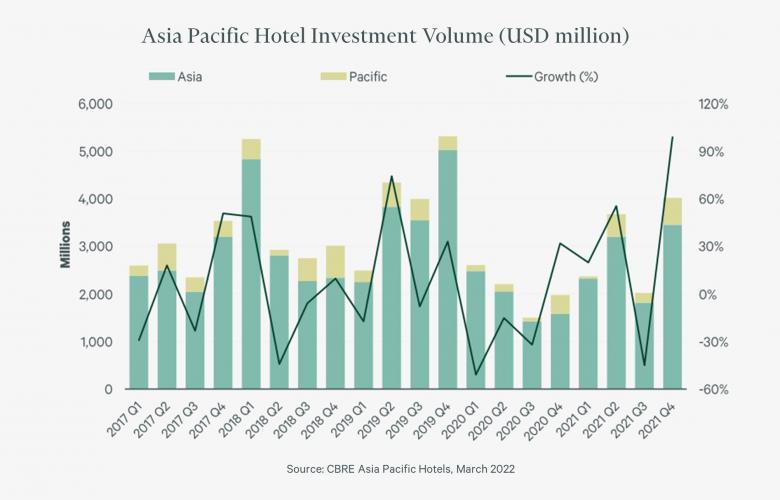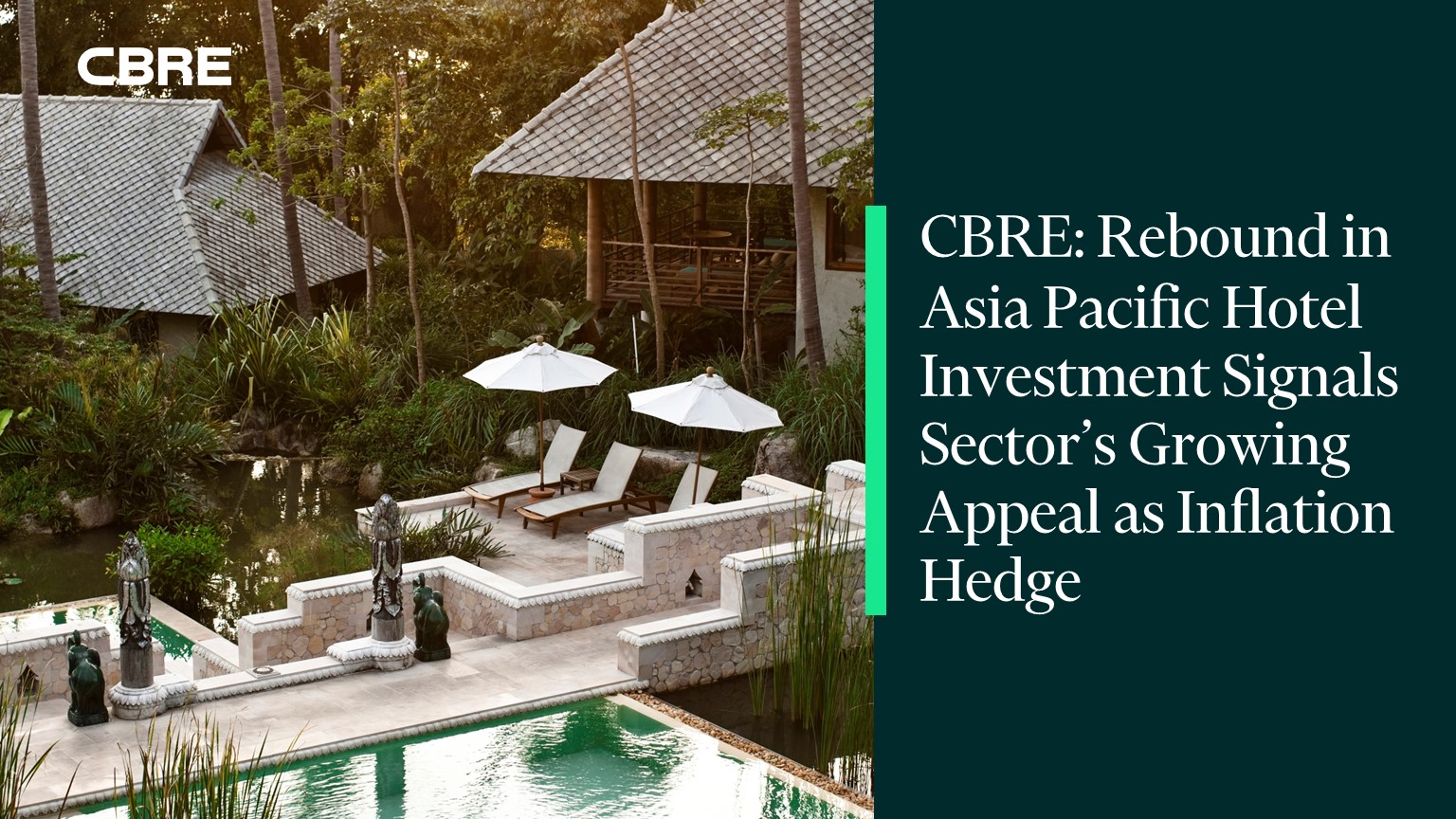Rebound in Asia Pacific Hotel Investment Signals Sector’s Growing Appeal as Inflation Hedge - CBRE
Contact
Rebound in Asia Pacific Hotel Investment Signals Sector’s Growing Appeal as Inflation Hedge - CBRE
Asia Pacific hotel investment volume grows 46% y-o-y to US$12.1 billion in 2021 as investors eye value-add and conversion opportunities.
Asia Pacific hotel investment staged a comeback in 2021, growing 46% year-on-year to reach US$12.1 billion. The sector’s steady rebound was underpinned by a growing volume of capital seeking to increase their exposure to the sector, according to the latest CBRE research.
“Hotels are among the sectors poised to benefit as the region’s borders reopen. The sector offers attractive risk-adjusted yields and asset repositioning opportunities to investors seeking enhanced returns. Hotels have gained appeal as a potential inflation hedge due to the sector’s uniquely short lease period measured in days rather than months or years as with other property types,” said Steve Carroll, CBRE’s Head of Hotels & Hospitality, Capital Markets, Asia Pacific.
CBRE has observed the sector fast emerging as one of the most sought-after for investors eyeing value-add opportunities. Buoyed by a steady reopening of borders and easing travel restrictions, investors including REITs, private offices, and a growing volume of private equity are acquiring hotels to upgrade guest offerings in anticipation of pent-up tourist demand, as well as converting some hotel assets into offices and co-living spaces.
CBRE is seeing increased conversion of assets into co-living spaces, particularly in Hong Kong SAR and Singapore where there is demand for cost-effective accommodation amid a relatively inflexible rental market. Mr. Atakawee Choosang, Head of Hotels, CBRE Thailand commented, “For Thailand, hotel owners and developers are re-examining ways to better utilize spaces in light of the new norm post COVID-19 , otherwise exploring potentially selling their assets.”
“For existing hotels, many operators and investors have taken advantage of the pandemic-induced lull in guests to upgrade and refurbish in preparation for the full return of guests, investing CapEx to implement new technology such as smart systems as key points of differentiation,” added Mr. Atakawee.
Steady recovery momentum
As countries further relax restrictions and reopen borders across the region, Southeast Asian resort markets are expected to benefit from pent-up travel demand and lead travel recovery. The need for more spacious outdoor environments has seen destinations like the Maldives already return to pre-pandemic levels of hotel occupancy and room rates.
CBRE expects the resort segment to see substantial investment demand into the second half of 2022 as competition for choice assets heat up on expectations of a full recovery in occupancy and visitor arrivals. In contrast, investor sentiment remains cautious towards urban hotels, which are expected to lag the overall recovery while companies maintain a cost-sensitive attitude towards corporate travel.
Lenders in some markets are adopting a more optimistic view towards the sector, with mainstream institutions in Australia and Japan extending financing to experienced hotel investors. Pricing expectations, including any discounts, are expected to reset in the coming months as hotel cashflows see a recovery to pre-pandemic income levels.
“With recovery on the cards for the industry, hotels will soon be welcoming a different type of traveller post-pandemic. There will be a greater emphasis on technology, whether for ensuring hygiene and safety for leisure guests, or for enhancing conference room and business meeting capabilities for business travellers. Growing environmental and social awareness among consumers is also another emerging trend that will drive further ESG adoption in the hotel sector and shape future transactions in this space,” added Mr. Carroll.









